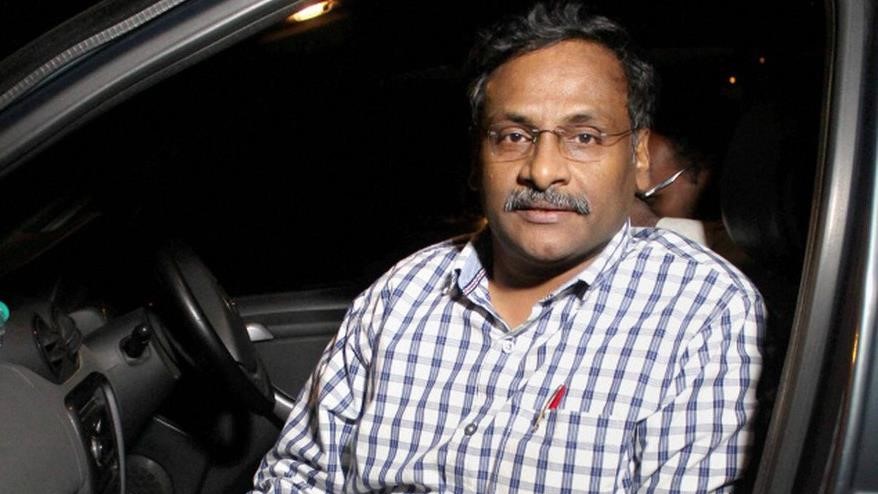NOVANEWS
By Sajjad Shaukat
During his recent visit to Pakistan, the newly-elected President of Afghanistan, Ashraf Ghani
said that his government and the people of Afghanistan desire to further strengthen bilateral
relations with Pakistan in all areas of mutual interest. He elaborated, “We must overcome the
past…we will not permit the past to destroy the future.”
The Afghan president who was accompanied by Afghan Defence Minister Gen. Bismillah
Muhammadi, Afghan Chief of General Staff Gen. Sher Muhammad Karimi and other senior
security officials also visited the General Headquarters and met Pakistan’s Chief of Army Staff
Gen. Raheel Sharif. In this regard, a press release from the Inter Service Public Relations said
that Afghan President Ashraf Ghani lauded Pakistan’s efforts to combat terrorism and the
sacrifices made by the nation. Pakistan’s proposal to offer security and defence cooperation and
training opportunities to Afghanistan have been received positively. There also exists the
realization of mutual economic cooperation in various fields.
It is notable that Gen. Raheel accompanied by the DG of Inter-Services Intelligence agency (ISI),
went to Kabul on December 17, 2014. During his meeting with his Afghan counterpart, President
Ashraf Ghani and the ISAF commander, he presented the evidence of linkage between the recent
massacre of children at Peshawar school and Tehreek-e-Taliban Pakistan (TTP) sanctuaries in
Afghan provinces of Kunar and Nuristan. He also asked about action against the TTP chief
In response, Afghan government and US has started taking action against the TTP. A number of
TTP militants have been captured in Afghanistan, while Fazlullah survived in a drone attack.
Meanwhile, Washington has also designated Mullah Fazullah as a global terrorist and seized his
Being a well-rounded Afghan politician, President Ashraff Ghani understands that the signing of
the US-Afghanistan Bilateral Security Agreement (BSA) has provided a sense of certainty—after
the withdrawal of NATO troops from Afghanistan—-though US President Barack Obama had
stated that 9800 troops would remain in Afghanistan from December 2014 till the 2016 complete
Now, even the US and its western allies who intend to seek stability in Afghanistan realize that
after the withdrawal of foreign troops, Afghanistan will be thrown in era of uncertainly and civil
war—and terrorism or stability in Pakistan and Afghanistan is interrelated. Notably, in the recent
years, a series of international conferences were held in order to bring stability and peace in
Afghanistan. For this purpose, US-led developed nations which also pledged billions of dollars
for the development of Afghanistan have repeatedly agreed that without Islamabad’s help,
stability cannot be achieved in Afghanistan.
In this regard, ongoing operations in North Waziristan and Khyber Agency, especially the
operation, Zarb-e-Azb which has broken the backbone of the Taliban insurgents has been
broadly welcomed internationally as well as in Washington. During his recent meeting with Gen.
Raheel, UK Prime Minister David Cameron has praised Pakistan military operations against the
terrorists. And during his visit to Islamabad, US Secretary of State John Kerry met Pakistan’s
political and military leaders on January 13, this year. He also appreciated Pakistan’s armed
forces about the successes, achieved during operation, Zarb-e-Azb. Sources suggest that during
the meeting, John Kerry was also shown evidence of Indian involvement in subversive activities
across Pakistan—financial support, training and provision of weapons to the militants.
Indian desperation in Afghanistan is increasing in the backdrop of growing engagements of
Pakistan and Afghanistan including US. To further its interests, Indian secret agency, RAW is
using Academia by funding writers like Bruce Riedel. Bruce Riedel belongs to breed of paid
writer, who creates contents which are void of realities and are prejudiced.
While, India is using every opportunity to affect improving relations between Pakistan and
Afghanistan, as both the countries are witnessing and welcoming increased engagements after
swearing in of Ashraf Ghani as President and Peshawar carnage incident. In fact, Indian politico-
diplomatic circle does not want peace and stability in this region.
New Delhi which has already invested billion of dollars in Afghanistan, signed a wide-ranging
strategic agreement with that country on October 5, 2011 also includes to help train Afghan
security forces, while assisting Kabul in diversified projects. And, the then President Karzai had
also signed another agreement with New Delhi to obtain Indian arms and weapons. However,
under the cover of these agreements, India has further been strengthening its grip in Afghanistan
to get strategic depth against Pakistan.
Indian presence in Afghanistan is much more than economic activities. Due to Af-Pak thawing,
India is up to its usual tirade to foment an environment by conducting terrorist attacks in both
Pakistan and Afghanistan to prove that Pakistan is creating trouble for Afghanistan.
On the other side, India through their consulates and other facilities in Afghanistan is equipping
and infiltrating Baloch Sub-nationalists and other terrorists in Pakistan’s province of Balochistan,
and had tasked Afghan intelligence-National Directorate of Security (NDS)-their cohorts to
In this context, reports regarding the Taliban leader, Mullah Omar roaming between Quetta and
Karachi are concocted contents on the behest of Indian propagandist, whereas he lives in
Afghanistan. Moreover, there are authentic information that Indian allies are harbouring Pakistan
wanted TTP militants like Wali and Mullah Fazallulah. They are also supporting them for
carrying out activities against Pakistan.
Nevertheless, taking note of Indian negative approach, in the recent past, US Senator John
McCain reminded the Obama administration that encouraging India to take a more active role in
Afghanistan, while simultaneously criticizing Pakistan could be a recipe for disaster. In fact,
India wants instability in Afghanistan, which favors its secret goals against Pakistan. But,
Pakistan seeks stability in Afghanistan, which is not possible owing to Indian presence in that
country. Therefore, Pakistan has legitimate concerns in Afghanistan.
Nonetheless, Afghan new regime realizes that the future of Afghanistan’s prosperity and stability
depend upon a formula to address Pakistan’s security concerns, as both the countries have been
facing common challenges. Hence, positive developments between Pak-Afghan relations have
resulted into Indian desperation in Afghanistan.



